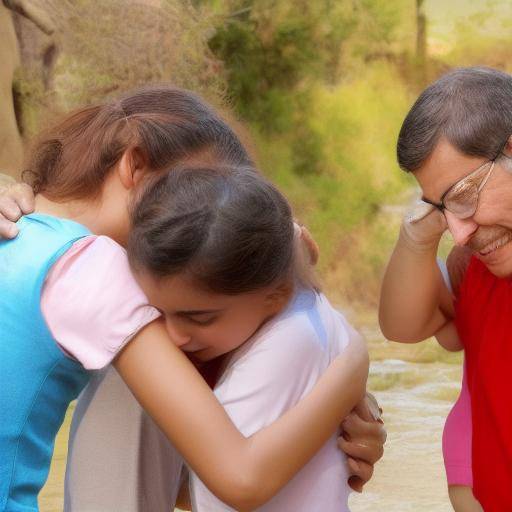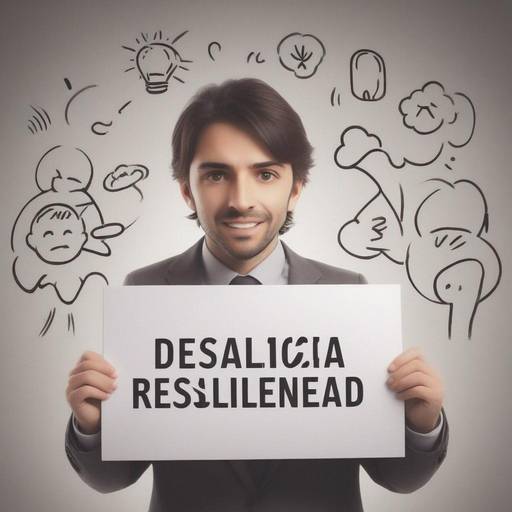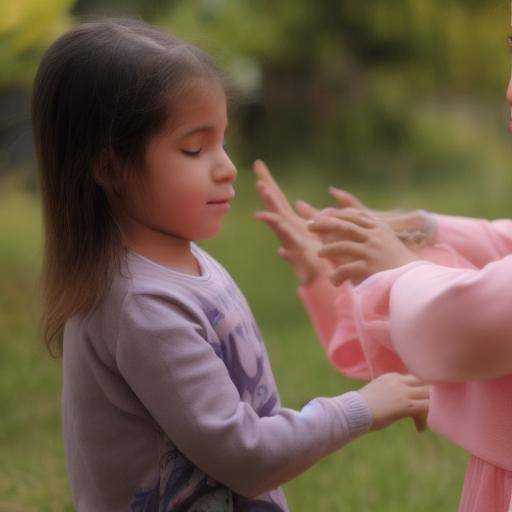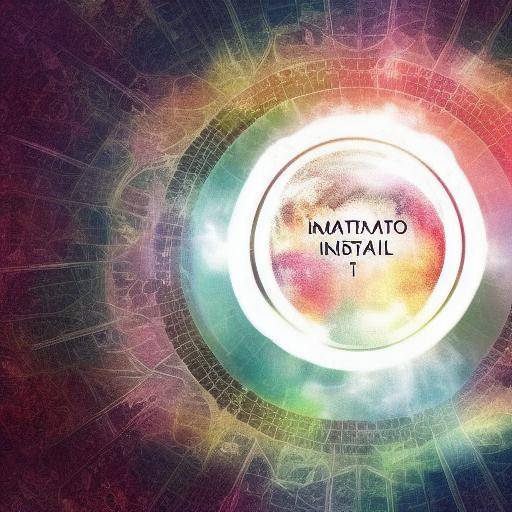
One of the most valuable skills that humans can develop is resilience, the ability to overcome adverse situations and get strengthened. In this sense, gratitude plays a crucial role in strengthening resilience, contributing to emotional well-being. In this article, we will explore in depth the impact of gratitude on strengthening resilience, its historical importance, benefits, challenges, practical applications, future trends and much more.
Introduction
Gratitude is a feeling of recognition to someone who has given us a benefit, whether material, emotional or spiritual. On the other hand, resilience refers to the ability to adapt positively to complex or traumatic situations. Both concepts are intrinsically linked to emotional well-being and play a key role in mental health and personal development.
In this article, we will explore how gratitude can enhance resilience, thereby strengthening the ability to face challenges and move forward. In addition, we will analyze its impact throughout history, in everyday life, in the workplace, as well as its relevance today.
History and Background
The concept of gratitude has deep roots in different philosophical and religious currents throughout the history of humanity. From ancient Greece with the Epicurean philosopher Epicuro, who considered gratitude as a fundamental virtue for achieving happiness, to the teachings of Buddhism, Christianity, Judaism and other spiritual traditions that have emphasized the importance of thanking.
Moreover, resilience has been studied in fields such as psychology, sociology and anthropology. Over the centuries, various currents of thought have emerged that have addressed resilience from different approaches, from the psychological perspective of the theory of attachment and the humanist approach to its application in community and organizational contexts.
Analysis in Deep
Gratitude not only generates a positive impact at the emotional level, but has also been the subject of various scientific studies that have demonstrated their beneficial effects on mental and physical health. The practice of gratitude has been associated with greater satisfaction with life, reduced levels of stress and anxiety, as well as an improvement in interpersonal relationships.
At the same time, resilience has become an area of growing interest in psychology and talent management, especially in crisis, change or adversity. The ability to adapt, learn and grow from challenging experiences is fundamental in personal and labor contexts.
Comprehensive review
At the practical level, the integration of gratitude into everyday life can enhance resilience and emotional well-being. Techniques such as carrying a daily of gratitude, expressing gratitude to the close people, or performing acts of goodness towards others can strengthen the ability to face adverse situations and find meaning even in difficult times.
In addition, the application of these concepts in working environments has proved to be beneficial, promoting more positive working environments, greater team cohesion, and greater capacity to adapt to changing situations. The integration of gratitude and resilience into talent management strategies is on the rise, recognizing their impact on the productivity and well-being of partners.
Comparative analysis
While gratitude and resilience have different dimensions, both share a focus on personal growth, adaptation to challenging circumstances and strengthening mental health. Gratitude can function as a catalyst for resilience, enhancing the ability to find meaning and hope in difficult times. While gratitude connects us with what we value and appreciate in our lives, resilience allows us to face adverse situations from a perspective of strength and overcoming.
Practical Tips and Accessible Recommendations
Integrating gratitude and resilience into everyday life is essential for its development. Some practical tips include:
- Take a diary of gratitude and record it daily for what you are grateful for.
- Express your appreciation and appreciation to the people around you for their support and contribution to your life.
- Focus on what is in your control and look for positive solutions to challenges you can face.
- Practicing self-pity and acceptance, recognizing that going through difficult moments is a natural part of life.
Ideas of Experts and Industry Approaches
Experts in psychology, coaching and leadership have emphasized the importance of integrating gratitude and resilience in personal and professional fields. They share the vision that the cultivation of gratitude strengthens resilience, allowing people to face challenges with a positive and constructive attitude.
In business environments, leaders and human resources managers have implemented programs and practices that encourage expression of gratitude and promote resilience among their partners. These initiatives have shown significant impacts on labor satisfaction, employee engagement and adaptive capacity to unexpected changes.
Case Studies and Practical Applications
Numerous case studies illustrate the positive impact of gratitude and resilience in different areas, from family and community environments to organizations and businesses. For example, gratitude-based employee recognition programmes have generated an increase in motivation and cohesion in work teams.
In the field of mental health, the integration of techniques of gratitude and the strengthening of resilience in psychological therapies has proven to contribute to the recovery and emotional well-being of individuals facing challenges such as depression or post-traumatic stress.
Future Trends and Predictions
As awareness of the importance of gratitude and resilience continues to grow, it is expected that their integration into fields such as psychology, education, leadership and talent management will continue to expand. In addition, the development of applications and technologies aimed at promoting gratitude and strengthening resilience will provide new tools for their practice at the individual and collective levels.
Conclusion
The impact of gratitude on strengthening resilience is undeniable. The cultivation of gratitude not only connects us with what we value in life, but also strengthens our ability to adapt and overcome during adverse moments. By integrating gratitude and resilience into our daily lives, we can build a solid foundation for emotional well-being and personal development.
Frequently asked questions
How can I practice gratitude in my daily life?
Practicing gratitude can be as simple as taking a few minutes each day to reflect on what you are grateful for. Keeping a diary of gratitude or verbally expressing your appreciation to the close people are effective ways of cultivating this feeling.
What techniques can I use to strengthen my resilience?
To strengthen resilience, it is essential to accept that facing challenges is part of life and to seek positive solutions to them. It is also important to practice self-pity and maintain an optimistic attitude.
What is the relationship between gratitude and resilience?
Gratitude can strengthen resilience by helping us find meaning and hope even in difficult times. Recognizing what we value in our lives gives us a
facing challenges and adversities with a more positive and constructive attitude.
What is the impact of gratitude and resilience on working environments?
The integration of gratitude and resilience into working environments has proven to promote greater work satisfaction, team cohesion and adaptive capacity to unexpected changes. It has also been associated with increased employee engagement.
How can I encourage gratitude and resilience in my work team?
As a leader, you can encourage gratitude and resilience in your team by promoting a positive environment, recognizing and assessing contributors' contributions, and providing emotional support during difficult times.
What technological advances are being developed to promote gratitude and resilience?
Applications and technologies are being developed to promote the practice of gratitude and the strengthening of resilience, including platforms of gratitude journals, mental training programs and emotional welfare applications.
What is the importance of gratitude and resilience in mental health?
Gratitude and resilience play a crucial role in mental health, contributing to greater satisfaction with life, reduced levels of stress and anxiety, as well as a more positive attitude towards adverse experiences.
What resources can I use to learn more about gratitude and resilience?
In addition to this article, there are numerous books, podcasts, conferences and online resources that address the practice of gratitude and the strengthening of resilience from different perspectives and approaches.
Conclusion
Gratitude and resilience are two fundamental aspects of personal development and emotional well-being. By cultivating gratitude in our daily lives, we strengthen our ability to overcome adversities with greater strength and hope. This combination allows us to face challenges more positively, build solid relationships and ultimately live a more full and fulfilling life.
In short, gratitude and resilience not only impact our mental health individually, but also influence working environments, interpersonal relationships and the well-being of society as a whole. In understanding and applying these principles, we can promote significant change in our lives and communities, strengthening our ability to adapt and grow to the vicissitudes of life.
To learn more about gratitude, resilience and emotional well-being, we invite you to explore our additional resources and continue to learn about these powerful tools for a full and fulfilling life.
Conclusion: words: 1303






















































